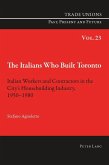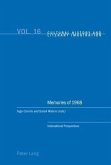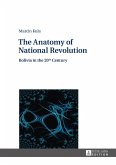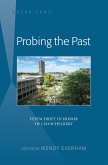After World War II, hundreds of thousands of Italians emigrated to Toronto. This book describes their labour, business, social and cultural history as they settled in their new home. It addresses fundamental issues that impacted both them and the city, including ethnic economic niching, unionization, urban proletarianization and migrants' entrepreneurship.
In addressing these issues the book focuses on the role played by a specific economic sector in enabling immigrants to find their place in their new host society. More specifically, this study looks at the residential sector of the construction industry that, between the 1950s and the 1970s, represented a typical economic ethnic niche for newly arrived Italians. In fact, tens of thousands of Italian men found work in this sector as labourers, bricklayers, carpenters, plasterers and cement finishers, while hundreds of others became contractors, subcontractors or small employers in the same industry. This book is about these real people. It gives voice to a community formed both by entrepreneurial subcontractors who created companies out of nothing and a large group of exploited workers who fought successfully for their rights. In this book you will find stories of inventiveness and hope as well as of oppression and despair. The purpose is to offer an original approach to issues arising from the economic and social history of twentieth-century mass migrations.
In addressing these issues the book focuses on the role played by a specific economic sector in enabling immigrants to find their place in their new host society. More specifically, this study looks at the residential sector of the construction industry that, between the 1950s and the 1970s, represented a typical economic ethnic niche for newly arrived Italians. In fact, tens of thousands of Italian men found work in this sector as labourers, bricklayers, carpenters, plasterers and cement finishers, while hundreds of others became contractors, subcontractors or small employers in the same industry. This book is about these real people. It gives voice to a community formed both by entrepreneurial subcontractors who created companies out of nothing and a large group of exploited workers who fought successfully for their rights. In this book you will find stories of inventiveness and hope as well as of oppression and despair. The purpose is to offer an original approach to issues arising from the economic and social history of twentieth-century mass migrations.
Dieser Download kann aus rechtlichen Gründen nur mit Rechnungsadresse in A, B, BG, CY, CZ, D, DK, EW, E, FIN, F, GR, HR, H, IRL, I, LT, L, LR, M, NL, PL, P, R, S, SLO, SK ausgeliefert werden.
«Agnoletto's passionate embrace of his subject does not weaken the rigor of his analysis, but neither is it dull; he transforms demographic, economic, social, and political data gleaned from a wide variety of sources into a highly engaging narrative.»
(Michelangelo Sabatino, Italian American Review 5.2/2015)
(Michelangelo Sabatino, Italian American Review 5.2/2015)









